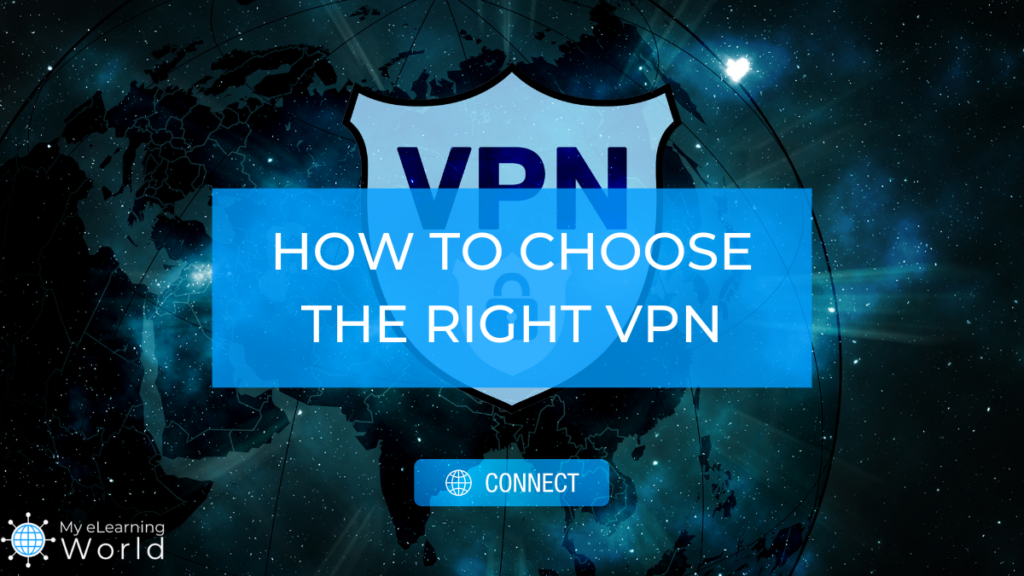When it comes to choosing the right VPN, there are lots of different factors to consider, and the right choice can be different for everyone.
As more of our work, play, and education experiences move into digital spaces, it’s more important than ever to protect ourselves online.
Data breaches have been on the rise in recent years, with reported incidents increasing from 128 million in 2021 to 422 million in 2022, according to Forbes.
Phishing, malware, and ransomware attacks can leave your personal data vulnerable.
Meanwhile, even the most innocent of online browsing can be tracked by internet service providers, both in public and at home.
It’s no wonder that privacy is becoming a greater concern for most internet users.
In the name of increased privacy, more and more people are investing in a VPN, or virtual private network, designed to keep their online activity confidential.
A VPN works by securely encrypting your data in a point-to-point tunnel from your device to a remote server.
By bouncing your traffic through a remote server, VPN services make it possible to obfuscate your geographic location and keep your browsing activity anonymous.
This makes it harder for scammers and service providers to monitor, snoop, or harvest your data.
VPNs have a number of uses but are especially helpful in keeping you safe while accessing high-risk networks, like the public Wifi connections at university campuses or airports.
These networks are often prime targets for hackers, since they contain a vast amount of valuable data and are usually not securely protected.
A VPN can come in handy for several other reasons, too. They’re useful for sidestepping geo-blocked content and censored sites, and can make it possible to access a wider array of media, gaming, and other content from around the globe.
Not all VPNs are created equally, however, and it can be overwhelming to try to choose a provider that covers all your bases without breaking the bank.
Read on to discover five key tips to choosing the right VPN for your needs.
Disclosure: Some of the links in this article are affiliate links, meaning at no additional cost for you, we might get a commission if you click the link and purchase.
Choosing the Right VPN for Your Needs
1. Make Sure It’s Reliable
First and foremost, you want your VPN service to be reliable.
Security is the main reason to invest in a VPN in the first place, so make sure you’re choosing one with robust encryption and an expansive network of servers.
High-quality VPN services like Surfshark operate thousands of servers in over 100 different countries.
Notably, Surfshark even runs servers in often-neglected areas, such as Africa and South America, guaranteeing even more expansive coverage.
Surfshark also runs on AES-256-GCM encryption, the strongest encryption standard.
Top-tier VPN servers are also committed to customer transparency.
Surfshark is well-known for presenting their privacy policies in easy-to-read language that makes it clear they do not log or profit from any data on its clients.
Reliable service with reputable practices is the way to go when it comes to making sure the VPN you’re purchasing is able to actually protect you when it counts.
2. Look for Flexible Features
VPN providers offer a number of different features with their products that might help you make a decision.
For example, Surfshark VPN comes with a built-in Kill Switch.
This will disable your connection if your VPN service is dropped, meaning you’ll never experience a sudden loss of protection.
Surfshark also offers a unique Bypasser option that allows you to disable your VPN for certain sites while maintaining its connection for everything else.
This feature, also known as split tunneling, is especially handy for students, since some colleges do not allow VPN users to access certain sites or apps.
It’s also wise to keep in mind that some VPN servers may put limits on the amount of data and bandwidth you can use to prevent network outages.
If you know you’re planning to use your VPN to download, stream, or game, you may want to invest in a provider like Surfshark that does not place any cap on your bandwidth use.
3. Explore Antivirus Options
Using a VPN can definitely make it harder for malicious users to spy on your activity, but encryption alone can’t protect you from every cyber attack.
Thankfully, many VPN providers also offer antivirus options you can bundle with your VPN service.
Antivirus programs can detect and remove malware from your computer before it has a chance to inflict damage on your system and data.
While you can purchase antivirus software separately and install it on your computer, many users find it easier to add antivirus protection alongside their VPNs.
Surfshark VPN, for example, offers Surfshark Alert to notify you of potential data breaches in real-time, as well as Surfshark Incogni to allow you to search in a private, ad-free mode.
The company also offers its Cleanweb ad blocker to stop ads, trackers, and malware from accessing your activity.
Taking advantage of these built-in antivirus products makes it easier and simpler to keep your entire system better protected from cyber threats.
4. Consider Which Devices You’re Using and How
Before you install a VPN, give some thought to which devices you’ll want to protect and what you’ll use them for.
Some remote workers, for example, might have both a work and home computer system that they’ll need to cover.
Students will want a good VPN for school that can work on their laptops, phones, and tablets.
Other users might want a VPN that can be used for both their laptop and gaming system, while many others would like to protect their phone’s internet connection, too.
If you have multiple devices to connect, you’ll want to choose a VPN service with a robust infrastructure that can easily handle your needs.
Several leading VPN services allow you to connect multiple devices, though Surfshark is the only top-tier provider that allows for unlimited connections at no extra charge.
If you use multiple devices to browse, work, or learn online, this is an important factor to consider when it comes to securing your activity.
You’ll also want to give some thought as to what you’ll be using your VPN for.
If it’s strictly for work and research, you might need less bandwidth than those who’d also like to take advantage of a VPN’s ability to stream internationally or access live sports.
If you do plan to use your VPN for entertainment or gaming purposes, you’ll want to make sure it’s up to the task. Surfshark, for example, is especially adept at sidestepping geo-blocked media from platforms like Netflix and Hulu.
Considering how many devices you’d like to protect and how you’d like to use them can help you narrow down choices to find the perfect VPN for your needs.
5. Pinpoint Your Price Range
It’s always important to consider price when it comes to making an investment in your online security.
Free VPN providers do exist, and some of them are capable of protecting your computer to a certain degree.
However, these options usually put limits on how much data you can use, how many servers you can connect to, how many devices you can protect, and how long you can access the VPN.
Worst still, some free VPN companies will actually log your data and information and sell it – especially hypocritical from a service designed to improve privacy.
If you’re looking for quality at an affordable price, we recommend taking advantage of Surfshark’s 82% discount with 2 months of free service for our readers who use this link. This deal brings the total monthly cost to just $2.30.
Paying less than 3 bucks a month is almost as painless as getting a VPN for free.
The difference is that with Surfshark, you’re also getting a wide array of servers, impeccable encryption services, powerful antivirus options, and unlimited device connections.
Final Thoughts on Choosing the Right VPN for Your Needs
Whichever service you end up using for your VPN needs, it pays to spend a little time planning.
Take into account your provider’s availability and capability. You don’t want to choose a network without enough servers to actually keep your activity secure.
Consider how many devices you’ll need to protect and what you’ll use them for. No one wants to be blindsided by extra costs when it’s time to secure all of your devices.
Factor in the amount of bandwidth you’ll need for your internet activities, so you won’t be left in the lurch (or stuck paying hidden fees) if your provider caps bandwidth usage at a certain amount.
Don’t skimp on antivirus protection opportunities. Remember, the entire point of a VPN is to keep your data safe, so you’ll want to take every possible step to prevent malware and phishing scams.
And always shop around for high-quality, reliable service that won’t be too hard on your wallet. There’s no need to shell out $16 a month if you’d rather only pay $2.30.
Following these steps will have you browsing safely and securely in no time, no matter where you are in the world.
Have any more questions about choosing the right VPN? Leave your questions below so we can help you out.
- Elevating Your Virtual Presence: Why EMEET’s SmartCam S800 Stands Out in Modern Communication - 06/04/2025
- US Teachers Will Spend $3.35 Billion of Their Own Money on Classroom Expenses in 2025-25 School Year - 06/04/2025
- Report: Leveraging AI Tools Could Help US Teachers Avoid $43.4 Billion of Unpaid Overtime Work - 06/04/2025



